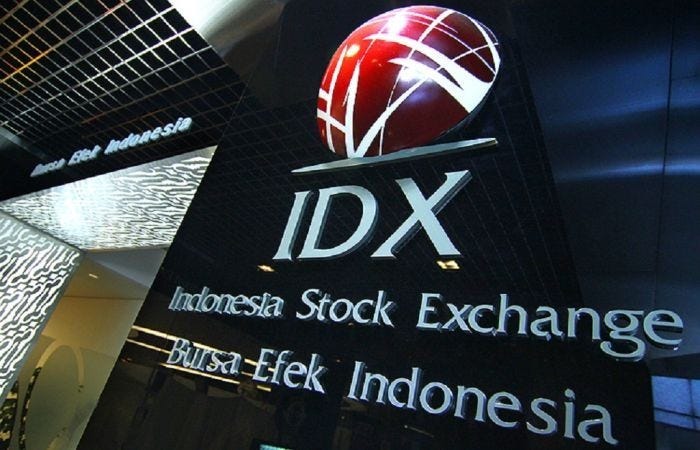Hello Coconauts,
It took less than a year for Indonesia to reach 1 million COVID-19 cases. Officially, that is, since it’s practically impossible to ascertain the true grim extent of the viral disease’s outbreak in Indonesia.
Where to from here for Indonesia? Will the vaccines help? Well, we’re not doing that great on that front either despite the fanfare of the program’s launch two weeks ago.
There’s little we can do now but continue to take personal responsibility to guard ourselves and those around us against the coronavirus. Like we all used to say at the onset of the pandemic, this, too, shall pass. We just don’t know when, so hang tight, stay safe, and stay healthy.
We’ll see you next week!
COVID-19
1 million cases
Indonesia surpassed 1 million COVID-19 cases on Jan. 26, becoming the first Southeast Asian nation — and the fourth in Asia — to hit the grim milestone. That is despite Indonesia’s testing rate — 32,874 per 1 million people — being one of the lowest in the world among the most affected countries.
Experts say Indonesia’s true caseload can be up to 10 times its official number. One expert said Indonesia likely reached 1 million cases as early as July 2020, when the government reported around 100,000 cases.
Indonesia recorded its first COVID-19 cases in March 2020 and its caseload has gradually climbed without any meaningful signs of slowing down 10 months later.
Indonesia’s death toll from COVID-19 (28,855 as of Jan. 28) is more than that of all other ASEAN countries combined. It reported a record daily death toll of 476 on Jan. 28. At least 647 health workers have died from COVID-19.
Hospitals in the country’s most affected provinces, including Jakarta and West Java, are reportedly on the brink of collapse as they are being inundated with COVID-19 patients. Calls are growing louder for provincial governments to designate more health facilities for COVID-19 treatment.
Where’s the vaccine?
President Joko Widodo on Wednesday received his second of two required doses of the CoronaVac vaccine, exactly two weeks since his first jab, which launched Indonesia’s mass vaccination program.
According to Health Ministry data, in the two weeks since the program launched, 363,318 people — mostly health workers — have received the first dose of the vaccine, while only 5,468 have received the second. The government previously said it aims to vaccinate 800,000 people a day to achieve its goal of inoculating 180 million people by early 2022.
Jokowi cited challenges in field management as the reason behind the delay, but promised that the government will be able to vaccinate up to 1 million people per day soon.
The government previously said it would begin vaccinating the general public in April, but the president made a seemingly offhanded comment that it may be brought forward to mid-February.
Recommended reads
How two officials testing positive depicts the state of Indonesia's COVID-19 response (The Jakarta Post)
If there was ever an apt saying to accurately depict a nation’s troubled COVID-19 response, it could be summed up as follows: “When you point a finger at someone, there are three fingers pointing back at you.”
Does Indonesian policy on Covid-19 vaccination discriminate against the elderly? (Indonesia at Melbourne)
The vaccination program is focused on reaching herd immunity as soon as possible, with the hope of quickly jumpstarting Indonesia’s flagging economy. The decision to exclude older people from the initial phase of vaccination seems to be based on an instrumentalist view of the elderly, in which they are judged based on their value to the economy. Senior citizens are apparently seen as not deserving of Covid-19 vaccinations because of their limited capacity to contribute to economic development.
Business and the economy
Negative stonks
The Indonesian Composite Index (IHSG) tumbled for six consecutive trading days, closing at 5,979.39 on Thursday despite almost touching 6,500 on Jan. 20. The downward trend continued at this morning’s trading session, closing at 5,883.63.
Numerous reports have emerged from Indonesia that amateur stock market investors have fallen on hard times during the downtrend. Many reportedly used emergency savings and even borrowed money to take advantage of IHSG’s soaring heights earlier this month, only for share prices to fall drastically.
Sharia banks merger complete
Bank Syariah Indonesia is on course for its February official launch after the Financial Services Authority (OJK) approved the merger of state-owned sharia-compliant banks BRI Syariah, Bank Syariah Mandiri, and BNI Syariah.
The combined entity boasts an asset of IDR214.6 trillion (US$15.38 billion), making it the largest Islamic bank in Indonesia and among the top 10 sharia banks in the world.
Sustainable circles
Indonesia may add up to US$45 billion to its GDP by 2030 if it adopts a circular economy in five key sectors, namely textiles, retail, electronic manufacturing, construction and food and beverage. Combined, the sectors contributed 33 percent of Indonesia’s GDP and employed 43 million people in 2019.
Circular economy practices in the five sectors may see Indonesia cut down on waste by between 18 and 52 percent by 2030, as well as generate up to 4.4 million new jobs.
Depleting oil
The Ministry of Energy and Mineral Resources (ESDM) warned that Indonesia will use up its oil reserves in 9.5 years and its natural gas reserves in 19.5 years, and called on energy companies to step up exploration and mining of the resources.
Indonesia currently has 4.17 billion barrels of oil reserves, 2.44 billion barrels of which are proven reserves.
Economic recovery budget
Indonesia raised its COVID-19 economic recovery budget for 2021 from IDR372.3 trillion (US$26.48 billion) to US$553.09 trillion (US$39.4 billion), indicating that the country may need as much fiscal support as was dispersed in 2020. The fully-subsidized mass vaccination program was cited as one reason for the raise.
In 2020, the government allocated an economic recovery budget of IDR692.5 trillion (US$49.2 billion) but spent IDR579.78 trillion (US$41.2 billion) for the program.
Empowering MSMEs
State-owned telco Telkomsel has integrated its MyAds digital advertising platform with decacorn Gojek’s GoBiz app, which is designated for its micro, small, and medium enterprises (MSMEs) business partners. Under the integration, Gojek’s business partners can now market their products with more efficiency and to more customers using MyAds’ analytics features.
Recommended reads
These high-profile fraud cases have important implications for the Indonesian model of economic growth which relies on large foreign capital inflows and deepening domestic capital markets, in a context in which the state typically occupies a major role in important economic sectors. Obviously, a financial system plagued by scandals in large funds owned by the state could throw a wrench into those plans.
Across the archipelago
Merapi erupts
Central Java’s Mount Merapi, Indonesia’ most active volcano, has spewed lava and volcanic ash clouds in a series of eruptions that began on Wednesday. No casualties have been reported.
Hundreds of people residing near the volcano’s slopes have been evacuated amid continued warnings of further eruptions.
Tanked
Indonesia on Sunday seized Iran and Panama-flagged oil tankers, each capable of carrying 2 million barrels, in waters off Kalimantan. The tankers were suspected of carrying out an illegal oil transfer, which also led to some spillage.
The two tankers were escorted to Batam for an investigation. The trail of evidence so far suggests that the Panama-flagged tanker is owned by a Chinese company.
Missing Rohingya
Hundreds of Rohingya are missing from a refugee camp in Aceh, who are believed to have enlisted traffickers to help them cross into Malaysia. Only 112 out of the 400 refugees who arrived at the makeshift camp between June and September remain.
Even though Indonesia is not a signatory to an international convention of refugees, rights groups say the country reduced security measures at the camp and therefore breached its obligation to protect refugees seeking asylum on its soil.
New capital awaits vaccinations
Indonesia’s plan to relocate its capital city to East Kalimantan was halted by COVID-19, but the government is aiming to resume construction at the site by the time the country’s mass vaccination program concludes in March 2022. The government hopes the president can work out of the new capital city in 2024.
Instant noodle icon dies
Instant noodle lovers around the world are mourning the death of Nunuk Nuraini, a flavor scientist responsible for Indomie’s iconic flavors, including the beloved mie goreng flavor. Nunuk served as Indomie’s chief taste developer for almost 30 years.
Top Coconuts Jakarta stories this week
Tokopedia serving up a K-pop treat with BTS and BLACKPINK performances tonight
Alleged hand sanitizer thief comes clean following capture on TransJakarta bus
Indonesian man allegedly stabbed housemate to death after being called ‘handsome’
Top Coconuts Bali stories this week







